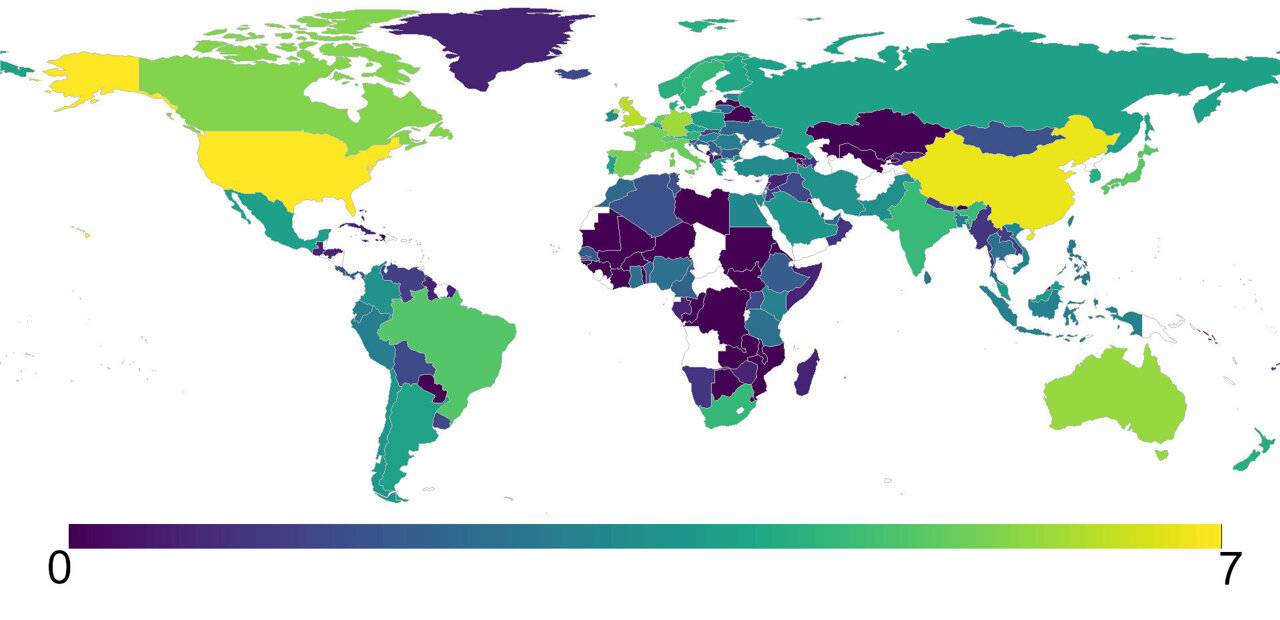Science
2025-04-16 01:22:45
Content

The ongoing assault on NASA's scientific integrity takes aim squarely at climate change research, revealing a troubling pattern of prioritizing corporate interests over scientific understanding. This systematic undermining of scientific inquiry has persisted across political administrations, demonstrating a consistent willingness to compromise research objectivity for economic gain.
By targeting NASA's critical climate research, political and corporate interests seek to diminish the agency's ability to provide crucial insights into environmental changes. This approach not only threatens scientific independence but also undermines our collective understanding of global environmental challenges.
The trend reflects a deeper systemic issue where scientific exploration is increasingly viewed through the narrow lens of immediate financial returns, rather than as a fundamental pursuit of knowledge that can benefit humanity in the long term. Such short-sighted perspectives risk marginalizing essential research that could help address pressing global environmental concerns.
Scientific Integrity Under Siege: The Alarming Erosion of Climate Research Funding
In the complex landscape of scientific research, a disturbing trend has emerged that threatens the fundamental principles of academic inquiry and environmental understanding. The systematic undermining of climate change research represents more than just a budgetary challenge—it signals a profound ideological assault on scientific objectivity and our collective understanding of global environmental dynamics.
Unraveling the Dangerous Threads of Scientific Suppression
The Political Landscape of Research Funding
The contemporary scientific ecosystem has become increasingly vulnerable to political manipulation, with research institutions facing unprecedented pressures from governmental and corporate interests. NASA, a beacon of scientific exploration and environmental research, finds itself at the epicenter of this complex battleground where scientific integrity is constantly challenged.
Political interference in scientific funding has created a chilling environment where researchers must navigate intricate networks of financial constraints and ideological restrictions. The systematic reduction of climate change research budgets represents a strategic approach to marginalizing critical scientific investigations that could potentially challenge existing economic paradigms.
Economic Motivations Behind Research Suppression
Beneath the surface of bureaucratic decision-making lies a more insidious mechanism of control. Private sector interests consistently seek to minimize research that might expose environmental vulnerabilities or challenge established industrial practices. By strategically limiting funding and redirecting scientific focus, powerful economic actors can effectively suppress knowledge that could threaten their existing business models.
The relationship between political institutions and corporate entities has created a sophisticated mechanism of scientific gatekeeping. Researchers find themselves increasingly constrained, forced to justify their work within narrow parameters that align with predetermined economic narratives.
Technological and Methodological Implications
The reduction of climate research funding extends far beyond immediate financial constraints. It represents a significant technological setback, potentially hampering our ability to develop innovative solutions to complex environmental challenges. Advanced monitoring systems, satellite technologies, and comprehensive climate modeling require sustained investment and intellectual freedom.
NASA's unique position as a global leader in scientific research makes its funding challenges particularly critical. The agency's capacity to generate comprehensive environmental data has been instrumental in understanding global climate dynamics, making any reduction in its research capabilities a matter of international concern.
Global Consequences of Research Limitation
The systematic undermining of climate research transcends national boundaries, creating a global challenge with far-reaching implications. By restricting scientific inquiry, we risk creating significant knowledge gaps that could impede our collective ability to address urgent environmental transformations.
International scientific collaboration depends on robust, well-funded research infrastructures. When key institutions like NASA face funding restrictions, the entire global scientific community suffers, potentially delaying critical discoveries and technological innovations.
Resistance and Future Perspectives
Despite these challenges, the scientific community continues to demonstrate remarkable resilience. Researchers are developing innovative funding models, leveraging international collaborations, and finding creative ways to sustain critical research initiatives.
The ongoing struggle represents more than a mere budgetary dispute—it is a fundamental battle for scientific integrity, intellectual freedom, and our collective understanding of planetary systems. As we move forward, the ability to protect and nurture scientific research will be crucial in addressing the complex environmental challenges of the 21st century.









